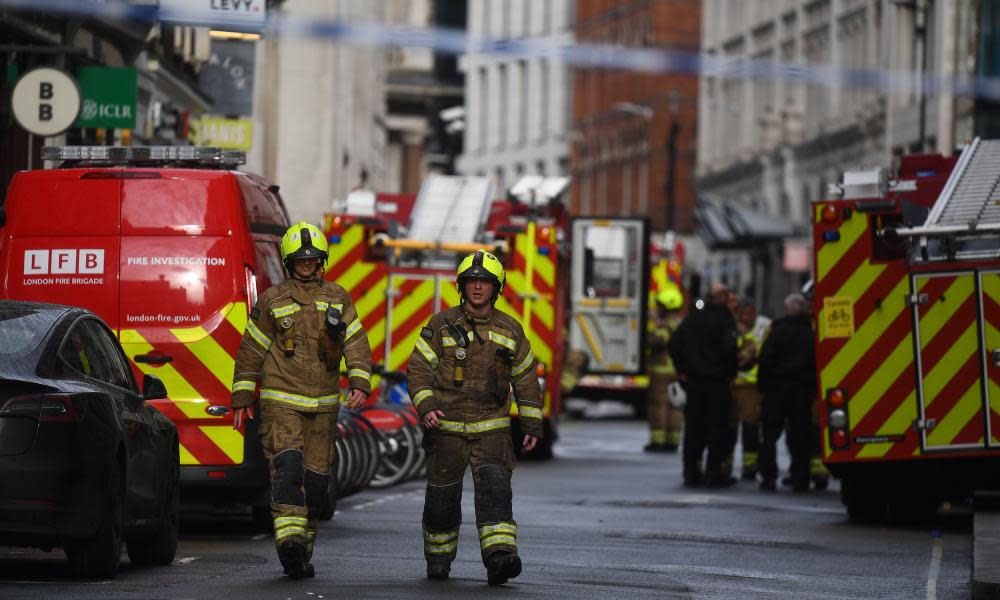Pay freeze for millions of UK workers ‘a kick in the teeth’, say unions

The chancellor vowed to protect low-paid workers on Wednesday as he pressed ahead with a wages freeze that will hit more than 2 million public sector workers.
To the dismay of public sector unions, Rishi Sunak said he would “pause” pay rises for workers including firefighters, police, teachers and local authority staff as he outlined Whitehall spending next year.
However, a million NHS doctors and nurses will receive an annual increase next year, and 2.1 million public sector workers who earn below the median average wage of £24,000 will receive a £250 increase.
Unions said that still left more than 2 million public sector workers without an increase, many of them frontline workers who have been tackling the pandemic.
The TUC leader, Frances O‘Grady, described the chancellor’s attack on the public sector as a breach of his pledge to level up jobs and pay across the country.
She said: “After a decade of standstill pay, yet another pay freeze is a kick in the teeth for the key workers in the public sector who kept the country going in this crisis.”
Police leaders said the pay freeze was wrong and hit those in the public sector who were on the frontline of fighting the pandemic.
Paul Griffiths, the president of the Police Superintendents’ Association, said the freeze came as police officers were being called upon to protect the public, “at significant risk to their own health, during the greatest health and economic emergency of our lifetime”.
John Apter of the Police Federation, representing more than 120,000 rank-and-file officers, said: “After years of austerity and a real terms pay cut of 18%, today’s news will be a kick in the teeth for police officers.”
Sunak extended his pledge to low-paid private sector workers, who will benefit from a 2.2% increase in the “national living wage” to £8.91 an hour from April 2021, “likely benefiting around 2 million of the lowest paid”.
Sunak said: “A full-time worker on the national living wage will see their annual earnings increase by £345 next year. And compared to 2016 when the policy was first introduced, that’s a pay rise of over £4,000.”
Bryan Sanderson, the chair of the Low Pay Commission, said he was pleased the government had accepted his organisation’s recommendation.
Some business groups said they were concerned about the capacity of firms that paid low wages, many of them among the hardest hit by the pandemic, to increase staff pay.
Rain Newton-Smith, the CBI’s chief economist, said: “Many lower-paid workers have been the heroes of the Covid crisis, and business supports government’s ambition of ending low pay. But unemployment is rising in lower-paying sectors and these increases will be tough for some firms afford, so caution is justified to protect jobs.”


